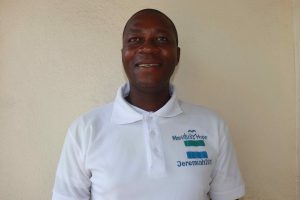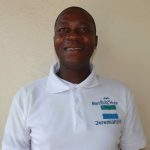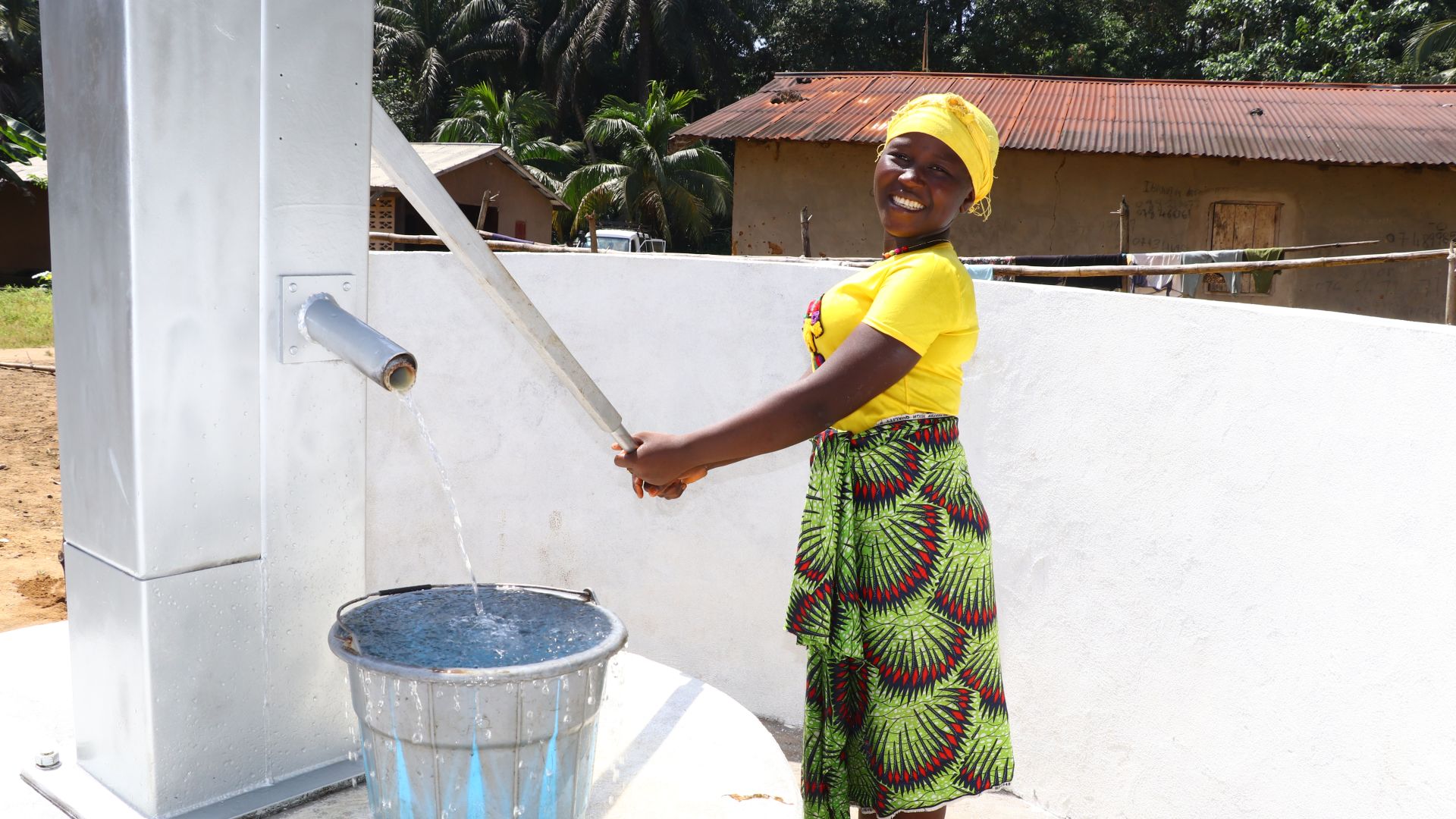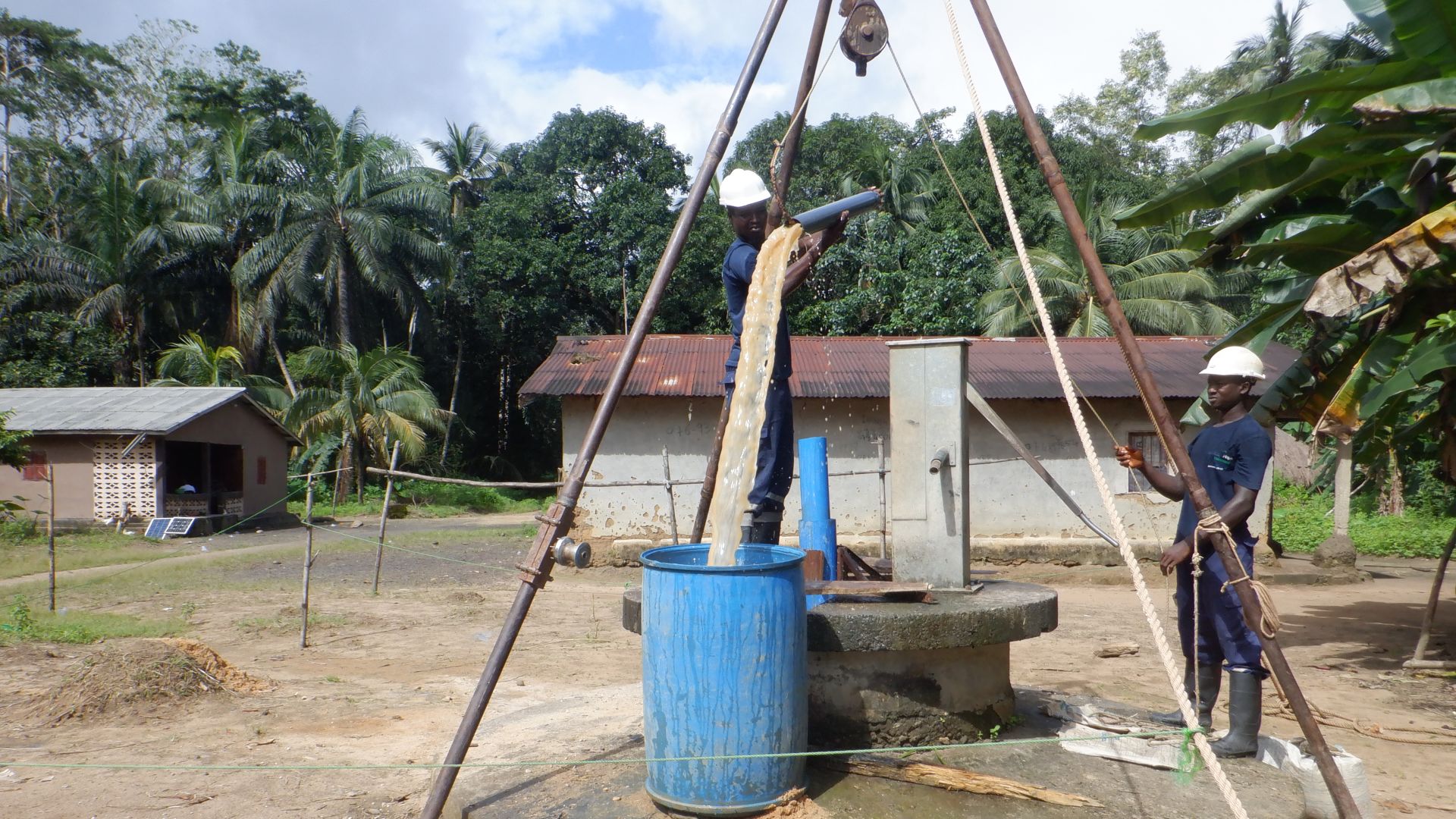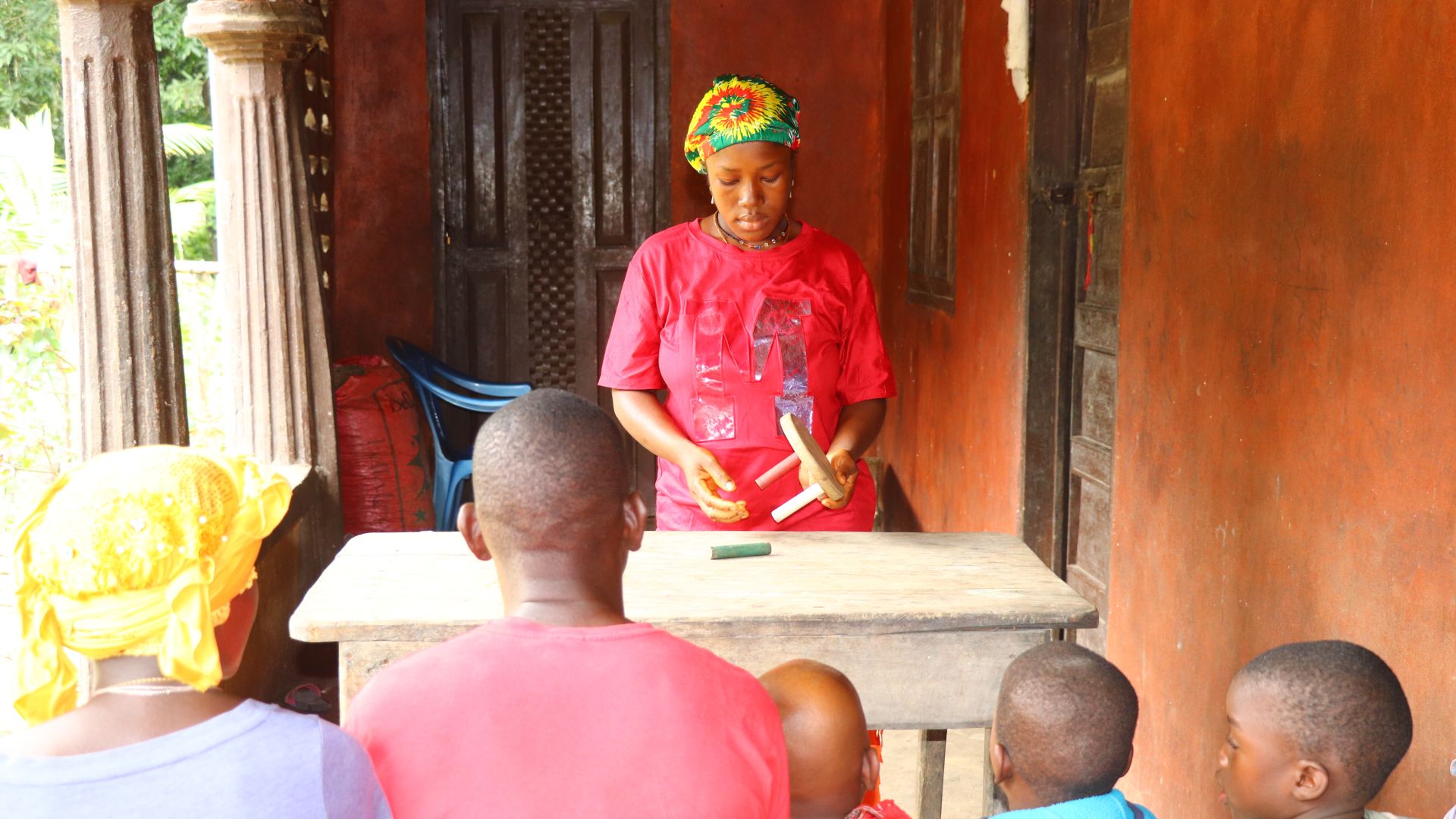The 134 people of Makombor Community struggle to access sufficient water. Their well is dry for several months a year, and they risk their safety to journey to the only other option, a distant stream. Fear runs rampant in this community: fear of water-related illness, animal attack, and water deprivation.
Field Officer Moses Kebbie described the current protected dug well with a hand pump, "This community is deprived of clean water. The pump machine broke down; no water chlorination or water quality test was done. In the dry season, especially in the month of March, the main water source becomes dry."
Since community members can not rely on the dug well to provide sufficient, reliable water, they must collect water from the local swamp instead.

"The road to the [alternate] source is bushy and slippery. This causes people to fall sometimes with the water containers on their heads, which may damage the water containers or [people] sustain minor injuries on their bodies. The alternate water source is a dangerous environment. No one goes there alone to fetch water or to do any other activities," added Moses.
21-year-old Mameh Conteh (seen below) shared, "Water challenges are disturbing as a nursing mother, especially in the dry season, between March and April. I go to the alternate source, a long distance from my village. I normally carry my child on my back to search for water. My child cries continuously if I leave him with another person because I am the only person he knows. If I decide to carry him on my back, it pains me because of his weight. I have no option but to take him along with me. Sometimes, I am afraid to carry my son to fetch water because of snake bites and other attacks from dangerous animals."

"When there is a water shortage in our community, we have no alternative but to go to the stream that is not pure. The stream is open, and this will let animals access it. They drink and urinate in the water, and we are using the same water to drink. We normally get sick after drinking water from this source," continued Mameh.
Children are not immune to the hardship the water crisis creates in the Makombor Community.
13-year-old Alhassan K. (seen below) shared his experience. "I am also afraid to wake early in the morning to fetch water because the road to the swamp is surrounded by forest. There are dangerous animals like snakes, scorpions, and monkeys that always scare people going to the swamp. I am always afraid to walk through it, especially in the rainy season when it is more slippery and the grass grows in the middle of the road. This makes snakes come closer to the middle of the road. A snake may bite someone if we step on it."

"The alternate water source is exposed to bacteria and not protected. I am always afraid to drink the water from that source because it will lead to diseases like cholera and diarrhea," Alhassan continued.
Not only is this community's health and safety at risk, but they risk their livelihoods and, ultimately, their futures when they can't collect enough water. Many people rely on processing palm oil and selling it, which requires a large quantity of water. They can't provide for their families when they can't collect the water needed.
Working community members lose out on potential income, and children lose essential classroom time. Every moment taken from their education is detrimental to their futures.
"I normally wake early to fetch water before school, especially in the dry season when the main water source runs out. We walk a long distance before getting to the alternate water source. I normally find it difficult to fetch water when I need it because of the crowd. This is the main reason I am always late to go to school. This problem plays a negative role in my academic performance," said Alhassan.
"I need water to launder my uniform after school hours every day before nightfall. Another negative effect I am facing because of the water crisis is that I do not get food on time. I am the only son of my mother. It is my duty to fetch water when I come back from school before the preparation of food. If I do not get the water when my mother needs it, the preparation of food could be delayed, and [that] leads to eating late at night. I also need safe drinking water to drink," added Alhassan.
Clean water is vital for anyone to thrive; without it, this community has a bleak future. Mameh and Alhassan have dreams of life without a water crisis:
"It will be a great opportunity for me as a nursing mother and the community to have safe and pure drinking water. This rehabilitation will eradicate the shortage of water in our community," added Mameh.
Rehabilitating the Makonbor Community well gives people like Alhassan and Mameh a chance at a brighter future. One unencumbered by the heavy burden of fear and illness their current water situation brings.
"All of these problems will be over when the rehabilitation of the main water source is complete. With the rehabilitation of the water source, I will no longer be late to go to school," Alhassan concluded.
The Proposed Solution, Determined Together...
At The Water Project, everyone has a part in conversations and solutions. We operate in transparency, believing it benefits everyone. We expect reliability from one another as well as our water solutions. Everyone involved makes this possible through hard work and dedication.
In a joint discovery process, community members determine their most advantageous water solution alongside our technical experts. Read more specifics about this solution on the What We're Building tab of this project page. Then, community members lend their support by collecting needed construction materials (sometimes for months ahead of time!), providing labor alongside our artisans, sheltering and feeding the builders, and supplying additional resources.
Water Access for Everyone
This water project is one piece in a large puzzle. In Kenya, Sierra Leone, and Uganda, we're working toward complete coverage of reliable, maintained water sources that guarantee public access now and in the future within a 30-minute round trip for each community, household, school, and health center. One day, we hope to report that this has been achieved!
Training on Health, Hygiene & More
With the community's input, we've identified topics where training will increase positive health outcomes at personal, household, and community levels. We'll coordinate with them to find the best training date. Some examples of what we train communities on are:
- Improved hygiene, health, and sanitation habits
- Safe water handling, storage & treatment
- Disease prevention and proper handwashing
- Income-generation
- Community leadership, governance, & election of a water committee
- Operation and maintenance of the water point

 Borehole Well and Hand Pump
Borehole Well and Hand Pump









